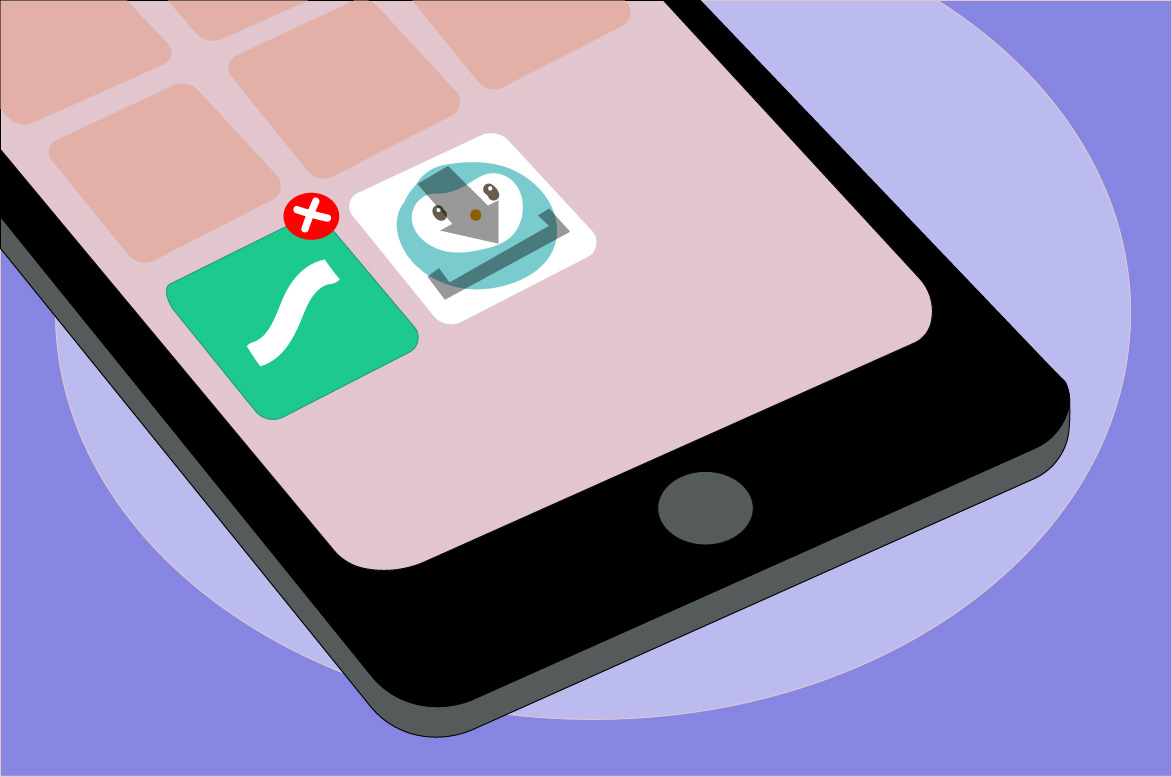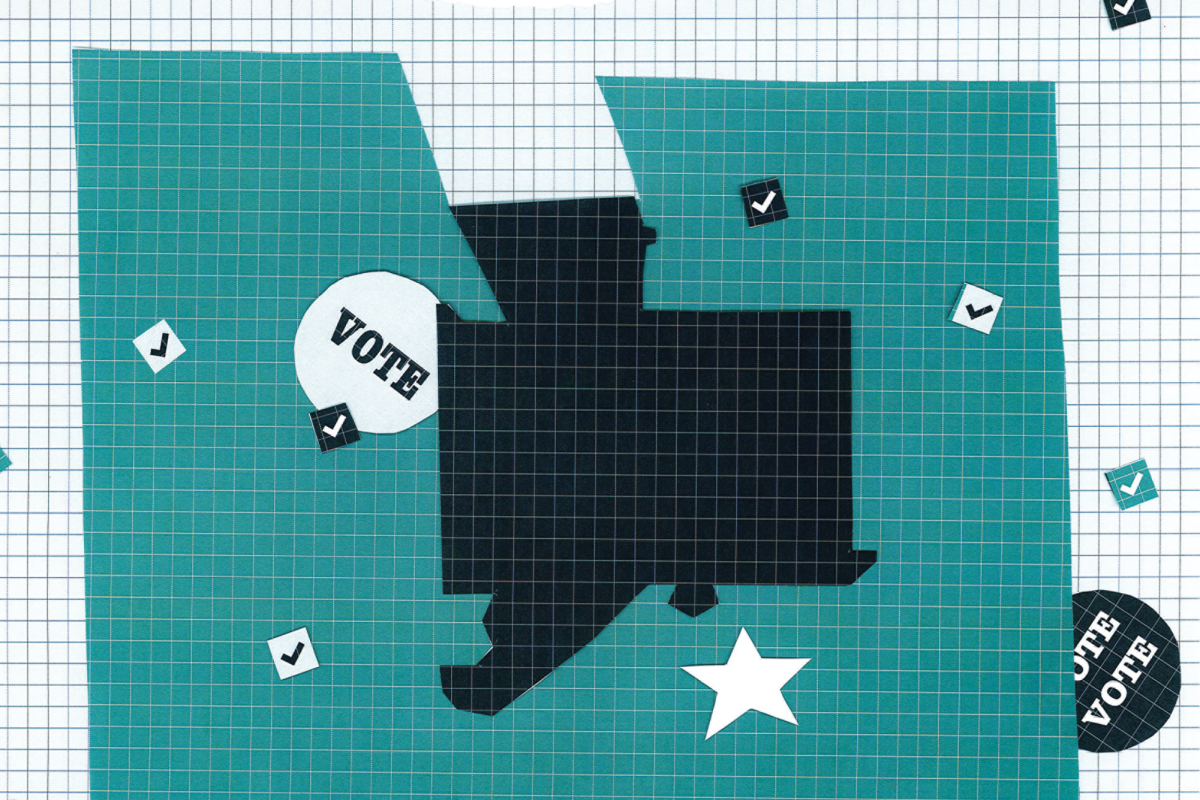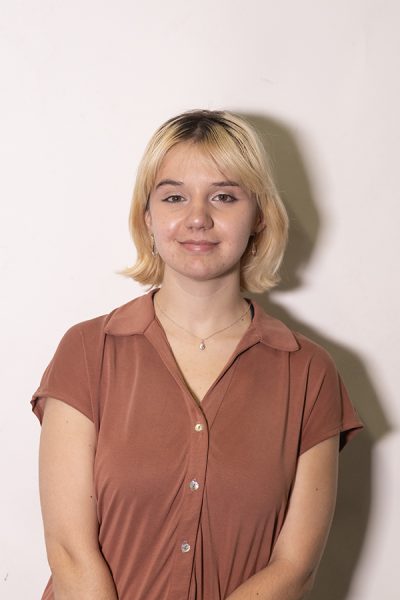As of Fall 2024, self-help and wellness app Sanvello, which was previously utilized by students and employees of Ithaca College, is no longer available. The app has been replaced by Wysa, another cost-free self-help app for the campus community that features an AI chatbot.
In February 2022, the college began offering Sanvello, which offered support and strategies for managing stress, anxiety and depression, as well as mindful meditation. UnitedHealth, the parent company of Sanvello, merged with a telehealth service called Self Care by AbleTo in January 2023. In June 2024, Sanvello removed the app from both Android and iOS, terminating the college’s contract with the company.
Michelle Goode, the director of health promotion, said the goal was to find an app that used scientific therapy strategies, such as cognitive behavioral therapy (CBT) and dialectical behavioral therapy (DBT), just like Sanvello did.
“Our office [did] some research into other solutions that are out there,” Goode said. “We ended up finding two different apps that we felt were in a price range we would be able to afford and also had that science-backed approach.”
The two apps were Happify and Wysa. A group of staff and students was assembled to pilot test the apps during March and April. Goode said the group was made up of people who had embraced the brand and helped promote it on campus.
“They were our Sanvello super-users, if you will,” Goode said. “They really love Sanvello, so much that they volunteered with our office to help promote it.”
Senior Allie Matthews, a student health ambassador at the Center for Health Promotion, was part of the pilot program. Matthews said the group discussed its opinions on both apps, ultimately deciding that Wysa was the best option.
“It was a kind of mutual consensus … folks really [liked] Wysa pretty fairly across the board,” Matthews said.
Other higher education institutions across the country have implemented Wysa as well, notably Harvard University, Columbia University and Washington University in St. Louis.
While the functions and resources on both Sanvello and Wysa are quite similar, they are visually and tonally different. Sanvello’s imagery was largely based in nature, with pictures of crashing waves or green forests. Wysa’s imagery is softer and more cartoonish, with much of it revolving around a blue penguin character named after the app.
“I think it’s kind of nice to have a little fun and a little whimsy to the app,” Matthews said. “It makes it more approachable.”
Goode said the decision was not purely based on the app’s contents, but also on its expanded coverage and annual payment plan. With Wysa, use of the app is available not only to students and employees, but to the dependents of employees as well.
“Some companies were charging per user,” Goode said. “[Wysa] was one of the more cost-effective alternatives we were looking at.”
Donations from Giving Day 2021 have funded Sanvello since it was implemented — and now fund Wysa.
“We knew this year … we would have to invest funding from different offices and departments because our donor funding from that Giving Day is running out,” Goode said.
One of the defining characteristics of Wysa is its AI integration. In Wysa, you can have conversations with the AI chat bot and it will respond with customized answers. According to Matthews and Goode, both Wysa and Happify had AI features, but Wysa’s AI was more accurate and appropriate in its responses.
“That was the most mixed spot [of the trial],” Goode said. “The other resource we piloted also had an AI component. … Our pilot participants liked the Wysa bot better. We asked them to be really critical and tough. … It was mixed on whether they liked [the bot].”
Goode said the AI aspect of the app is not meant to replace talk therapy in any way, rather that its purpose is to direct users around the app as well as offer solutions for the moments when users have no one to speak to in person.
Unlike popular AI chatbot ChatGPT, Wysa’s bot is closed-source, meaning it does not have any access to the open internet, and it only draws information and strategies provided by Wysa’s team of psychologists. According to the Wysa website, the bot was designed by a small team of programmers and psychologists. All chats are anonymous, and no data is shared or sold.
Yen Wu, a graduate student at Binghamton University interning at the Center for Health Promotion, found the AI features to be very helpful. She said it provides relief and comfort in the moments where help is difficult or far away.
“Sometimes you do have to just let it out,” Wu said. “I thought [it] was a really great venting tool.”
Wu said she liked the app’s immediate responses and that it could fit into her busy schedule as a graduate student and a mother.
“I don’t think it could ever replace a real therapist … you could never feel validated the same way,” Wu said. “It doesn’t replace the human interaction aspect of it, but it does give you the science [and] solutions.”
Editor’s note: The annual cost of Wysa for Ithaca College has been removed from this article as of Oct. 2 for legal reasons. The college is under contractual obligation with Wysa not to share the price and requested that The Ithacan remove the information. The Ithacan is editorially independent but willingly made the decision to remove the content because it is legally affiliated with the college.
Oct. 6 update to editor’s note: A previous version of this article disclosed how much Ithaca College paid for Sanvello’s services and other aspects of its pricing structure. After the college informed The Ithacan it had breached the Wysa contract by disclosing its price it reviewed its contract with Sanvello and realized it had also breached its contract with Sanvello.
















